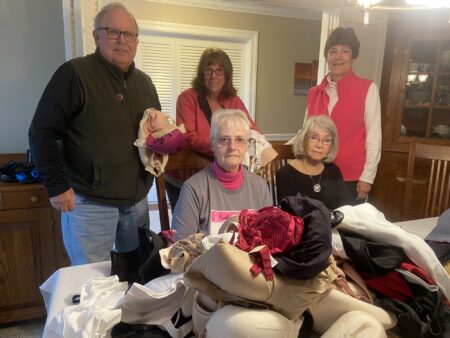Perhaps nothing is more meaningless than press conferences.
In the never-ending quest for a profound quote from a coach, a player, an owner or anyone who happens to be at the podium at the time, reporters of every kind sit mostly as audience members while listening to mostly vanilla comments with no real impact or substance.
For some reason, the powers that be in professional and collegiate athletics deem these media functions an essential part of a game, leading up to a game and wrapping up the game with another press conference.
In the event of a major happening, such as a player retiring or a coach being fired, a simple press release would suffice. I don’t understand why a fired coach would attend his own execution, but they are represented at press gatherings confirming a resignation or termination of coaching duties.
I particularly loathe press conferences featuring a player announcing his retirement from the game. Without fail, the event turns into a cry fest. In some cases (Brett Favre and Tom Brady) players who said they were retiring change their mind.
It’s enough that players and everyone else directly involved in a sport get to show their skills in public, on television, in front of millions of people. That’s where it should end.
I’m not interested in their thoughts on politics or social issues. They are paid to play, not be an ambassador for political correctness according to scripted storylines.
Players who compete in team sports shouldn’t be showered with awards at the end of the season. After all, there is no “I” in “Team.” Team sports should never be about the players, but the team. If a player has a singular performance during a game, it’s something that is to be expected.
Individual recognition regarding performance is commendable. That’s where it should stop. Instead, an elite group of players are promoted above others and become centerpieces and media darlings.
The movers and shakers of major sports are adept at lip service to the core principles of competition – sportsmanship, devotion to team and community, self-sacrifice and an undying commitment to excellence.
At the end of the proverbial day, they are ignored in favor of controversy, conflict and the promotion of certain players to celebrity status. Consequently, they become unworthy icons and role models for both young and old just because they can throw a football, score a goal, hit a home run or hit a three-pointer.
It seems that the need for attention, good or bad, is at the heart of it all – which leads to the suspicion that the main objectives are ratings and profits by any means.
Awards are both hype and hyperbole.
There comes a point in a player’s career that I no longer associate them with his chosen sport but what he does away from the field or arena.
Success in a sport all of a sudden makes players qualified to endorse products or take a role in a television show or movie. Are these players or performer? It’s all about image making, which in turn lends more credibility to a league – which then adds yet another layer of appeal first at conscious level and then a subconscious level.
It’s worth mentioning that most professional athletes never went to college to learn a subject but to play sports. But the transforming effect of becoming a public figure as a professional athlete dismisses any pre-requisite requirements for assuming another role in life that would have required others to spend years practicing and learning.
Indeed, membership does have its privileges.
One thing seems certain: good players make bad actors. But it doesn’t matter. Exposure is the main thing. It’s both an insult to a fan base (and intelligent people in general) and a brilliant public relations move. It also adds yet another storyline that further excites and confuses those who have made the choice to go all in on their favorite team and players.
Lee Goodwin writes about sports for Local.News. His column, “Sports Focus,” appears weekly.





















